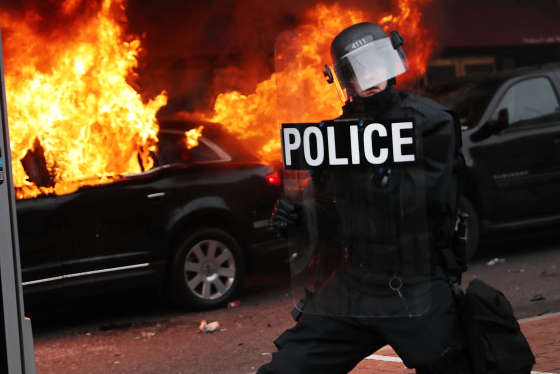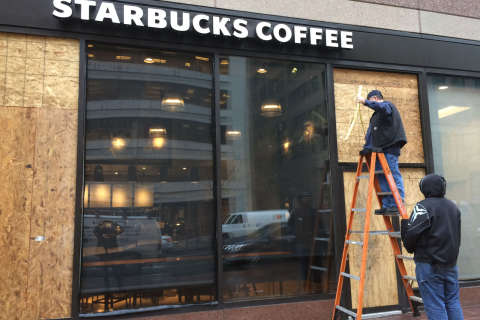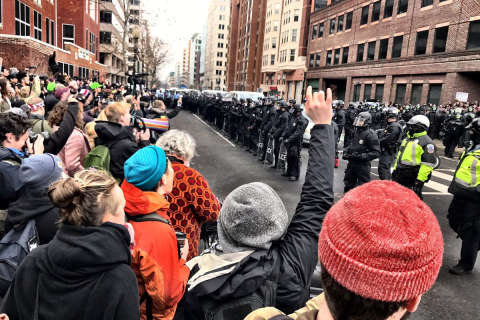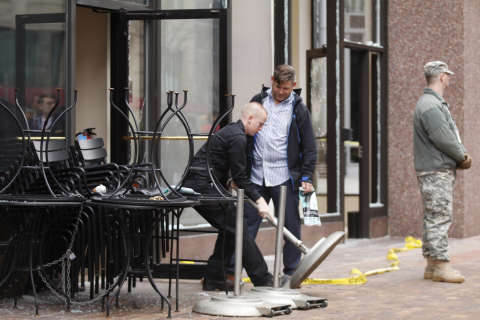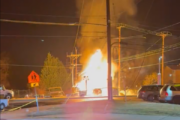WASHINGTON — Twelve people charged with inaugural rioting in D.C. appeared before a Superior Court Judge on Friday.
Their arraignment came hours after a grand jury issued a superseding indictment, which added more charges against those arrested Jan. 20.
Appearing Friday in court was the first group of the 214 arrested and charged in the unrest on 16 city blocks that occurred while President Trump was being inaugurated. During that mayhem, several businesses had windows broken and other property damage. Rioters also threw rocks and other objects at officers.
Judge Lynn Leibovitz heard two cases — the first involving an alleged rioter from Florida, the other involving the pleas of 11 indicted on a charge of inciting a riot and destruction of property, among other charges.
In the first case, Dane Powell of Tampa, Florida, pleaded guilty to felony rioting and for throwing rocks and pieces of cement at police officers. Taking the deal could spare Powell from a possible maximum of 20 years in prison. Instead, he’ll face anywhere from 2 to 6 years when he is sentenced in July, according to the U.S. attorney’s office for the District of Columbia.
Powell, along with many of the other alleged rioters, are accused by prosecutors of being in a group that formed a “black bloc.” Such a formation, prosecutors said, is an organized group wearing all black, gas masks and goggles to conceal their identities and to avoid pepper spray.
Eleven other suspects filled a courtroom after Powell’s case, as the judge heard their cases all at once. All pleaded not guilty.
Much of the discussion in the court centered on evidence and the data collected from the cellphones of those arrested. So far, prosecutors said, more than 600 hours of video have been collected in the case.
The judge tasked the prosecution to give all the defendants copies of the information that detectives took off their phones.
“None of us has actually been presented with individual evidence,” said Ben Aubin, a Pittsburgh, Pennsylvania, resident who came to show support for his friends as they entered their pleas.
“The prosecution itself sounds as though that they are also frustrated by the lack of evidence against any individual,” added Aubin, who was not part of Friday’s proceedings but is among the 214 charged.
Aubin believes many of those arrested may only be guilty of being in the wrong place at the wrong time. What took place, he said, is a result of some protesters not being allowed to let their voices be heard.
“I think that in today’s political climate, it’s only natural that we find ourselves in a situation where we see desperate people acting in desperate ways,” Aubin said.
All those charged were assigned court dates in March 2018, but will be back in court twice beforehand to discuss the evidence and the status of their cases.

